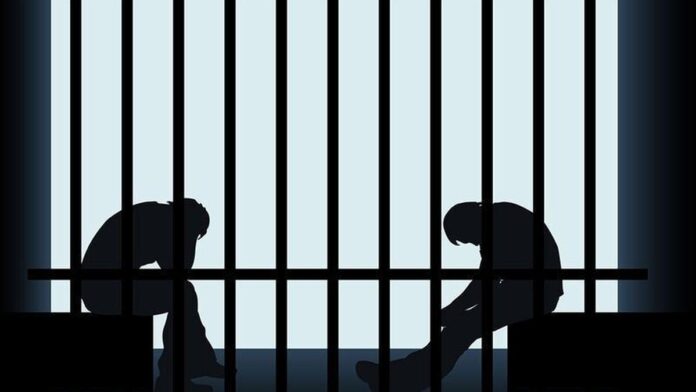
A plea before the Delhi High Court has sought conjugal visitation rights for the inmates of Delhi’s jails.
| Photo Credit: Getty Images/iStockphoto
The Delhi government is reassessing a proposal to permit conjugal visits for prisoners in the city’s jails after a pilot project in Punjab was suspended a few months after its launch.
Considering Punjab’s experience, the Delhi Chief Minister has sought further inputs from the Law Department on the feasibility of implementing such a project, according to Delhi government standing counsel Anuj Aggarwal. The Chief Minister has also sought to know if similar schemes are being implemented in other States.
Conjugal visits, also referred to as ‘private family visiting’, involve allowing prisoners to spend private time with their legal partners or spouses, including intimate relations, within the confines of a prison. Notably, India lacks a specific policy framework governing the conjugal rights of prisoners.
Earlier this month, during the hearing of a 2019 public interest litigation (PIL) plea seeking necessary arrangements for providing conjugal visitation rights to prisoners lodged in the city’s jails, the Delhi High Court was informed that the Delhi government is re-evaluating the issue based on the outcome of the initiative in Punjab.
In September 2022, Ludhiana Central Jail had introduced the ‘Parivar Mulakat (Family Visit)’ programme, which allowed inmates to have face-to-face meetings with loved ones in specially designated rooms on its premises.
“We informed the court that conjugal visits in Punjab jails were suspended shortly after being introduced due to various reasons, including security concerns,” said Mr. Aggarwal.
“When women come to avail of the facility, it is not feasible to conduct a thorough body check. This makes it challenging to ensure that no prohibited items are being concealed,” he said.
In October last year, the Director General (DG) of Prisons had submitted the proposal to the Delhi government’s Home Department to allow conjugal visits for inmates of the city’s jails. The government then assured the High Court that the proposal would be taken up with the Union Ministry of Home Affairs for further consideration. However, more than a year later, there has been no progress on the matter.
According to a government source, jail authorities had highlighted in the proposal significant challenges in implementing conjugal visits in Delhi’s overcrowded prisons, which already struggle to manage 1,200 daily visitations or ‘mulakats’.
Legal precedents
Legal precedents have established that prisoners have a right to conjugal visits. In 2014, the Punjab and Haryana High Court allowed a couple lodged in jail to have sex within the prison precincts in order to bear a child. It held that “the right to procreation survives incarceration”.
On November 1, 2018, the Madras High Court had permitted a life convict to go on two weeks’ parole following a plea by his wife that it was her right to have conjugal relations.
In July last year, Justice S.M. Subramaniam of the Madras High Court requested the Tamil Nadu government to consider allowing prisoners to have conjugal relations with spouses within the prison precincts.
‘Denial of basic rights’
Advocate and social activist Amit Sahni, who had filed the PIL plea before the Delhi High Court, said conjugal visitation rights are not provided by jail authorities in the national capital though most prisoners, over 85%, fall under the sexually active age group of 21-50.
He emphasised that the denial of conjugal visits is a denial of basic human rights to the spouse of the prisoner, who is “punished without any wrongdoing”.
In 2019, the DG (Prisons) had filed an affidavit in response to the PIL plea, stating that “the State of Delhi grants temporary leave to convicts and prisoners in the form of facilities such as parole and furlough for maintaining family and social ties, and therefore the purpose of conjugal relations between the prisoner and his/her spouse, while in prison, is served during the leave period”.
Experts argue that a law and a policy framework are necessary to regulate conjugal visits. “It would be necessary to make a law and frame rules for such visits, particularly when there are various riders and impediments with regard to outsiders even touching inmates or making any kind of physical contact,” said S.D. Singh, an advocate in the Supreme Court.
He emphasised that the legislature must recognise conjugal visits as an “important legal right by enacting a law, enabling its implementation with and without court orders”.
Published – December 24, 2024 01:48 am IST
